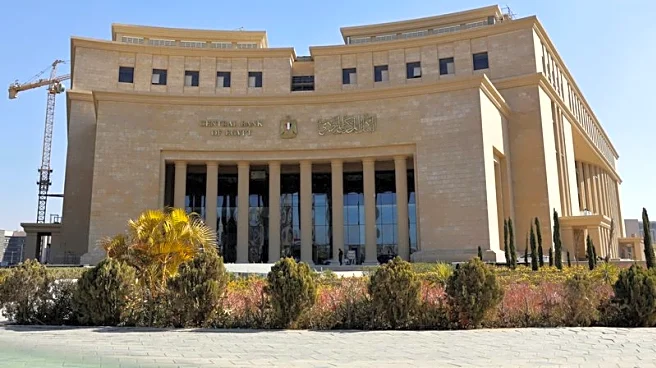What's Happening?
Treasury Secretary Scott Bessent addressed the potential outcomes of a Supreme Court case concerning President Trump's tariffs. The court is set to hear arguments on whether Trump exceeded his authority under the International Emergency Economic Powers
Act (IEEPA) to impose tariffs on trading partners. Bessent expressed confidence in the administration's position but acknowledged alternative measures if the court rules against them. He mentioned other authorities, such as Section 232 of the Trade Expansion Act and Section 301 of the Trade Act, which could be used to justify tariffs on national security or unfair trading grounds. The case is significant as it tests the extent of presidential power in trade policy.
Why It's Important?
The Supreme Court's decision on this case could redefine the scope of presidential authority in implementing trade measures. A ruling against the administration may limit the use of tariffs as a tool for economic policy, affecting U.S. trade relations and economic strategy. The case also highlights the balance between executive power and judicial oversight in economic governance. The outcome could influence future administrations' approach to trade policy and international negotiations. Businesses and trading partners are closely watching the case, as it may impact tariffs and trade agreements, affecting global supply chains and economic stability.
What's Next?
The Supreme Court's hearing will determine the legality of Trump's use of IEEPA for imposing tariffs. Depending on the ruling, the administration may need to explore alternative legal frameworks for trade measures. Bessent's comments suggest readiness to adapt strategies based on the court's decision. The administration's relationship with China, following recent meetings, may also play a role in future trade negotiations. The case's outcome could influence upcoming state visits and bilateral agreements, shaping U.S.-China trade dynamics. Stakeholders, including policymakers and international partners, will assess the implications for global trade policies.
















